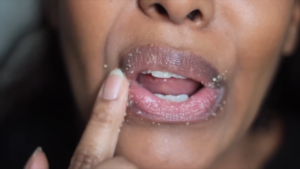Understanding acne is crucial for finding effective treatment options, especially for women who often experience hormonal fluctuations. Acne, a common skin condition, can be caused by various factors such as excess oil production, clogged pores, bacteria, and inflammation. By identifying the root causes, women can tailor their skincare routines to address specific issues, reducing breakouts and promoting clearer, healthier skin.
Effective acne treatment options for women range from over-the-counter products to prescription medications. Topical treatments with ingredients like salicylic acid, benzoyl peroxide, and retinoids can help manage breakouts and prevent future acne. Additionally, lifestyle changes, such as a balanced diet and stress management, play a vital role in maintaining clear skin. Consulting a dermatologist can provide personalized solutions for more persistent cases.
Understanding the causes of acne is the first step in addressing this common skin condition. The following subheadings will explore both the root causes of acne and effective treatment options for women.
Identifying the Root Causes of Acne
Acne in women is often triggered by hormonal fluctuations, which are especially prominent during menstrual cycles, pregnancy, or menopause. These hormonal changes can lead to increased oil production and inflammation, resulting in breakouts. Understanding how these fluctuations affect the skin is crucial for developing an effective skincare routine. By recognizing the hormonal nature of their acne, women can choose treatments that specifically target these changes, helping to manage and reduce breakouts more effectively.
Excess oil production and clogged pores are significant contributors to acne. When the skin produces too much oil, it can mix with dead skin cells and clog pores, creating an environment for bacteria to thrive. This leads to inflammation and the formation of acne. By understanding this process, women can incorporate products that control oil production and exfoliate the skin to keep pores clear. This targeted approach can significantly reduce the occurrence of acne.
Bacteria and inflammation also play a crucial role in the development of acne. The presence of bacteria, particularly Propionibacterium acnes, can exacerbate breakouts by increasing inflammation. Using antibacterial and anti-inflammatory treatments can help manage these factors. Additionally, maintaining a consistent skincare routine that includes cleansing, exfoliating, and moisturizing can prevent bacteria buildup and reduce inflammation. By addressing these specific causes, women can achieve clearer, healthier skin and effectively manage their acne.
4o
Effective Treatment Options for Women
Effective acne treatments for women encompass a range of options, from readily available over-the-counter products to prescription medications tailored to individual needs. Topical treatments containing salicylic acid, benzoyl peroxide, and retinoids are commonly used to combat acne. Salicylic acid helps unclog pores and exfoliate the skin, while benzoyl peroxide kills bacteria and reduces inflammation. Retinoids, derived from vitamin A, promote skin cell turnover and prevent pore blockages. These treatments are effective in reducing existing breakouts and preventing new ones from forming, providing a comprehensive approach to managing acne.
In addition to topical treatments, hormonal therapies such as birth control pills and anti-androgens are prescribed to women with hormonal acne. Birth control pills regulate hormone levels, reducing sebum production and acne flare-ups. Anti-androgens block the effects of androgens, which can contribute to excess oil production. Alongside medical treatments, maintaining a balanced diet rich in fruits, vegetables, and whole grains supports overall skin health. Managing stress through relaxation techniques or counseling can also help minimize hormonal fluctuations that trigger acne. Consulting a dermatologist ensures personalized care and guidance, optimizing treatment effectiveness and promoting long-term skin clarity.
Conclusion: Personalized Acne Solutions for Clearer Skin
Understanding acne and its causes is essential for women seeking effective treatment options. Hormonal fluctuations, excess oil production, clogged pores, bacteria, and inflammation are common triggers. By identifying these root causes, women can create tailored skincare routines to reduce breakouts and achieve healthier skin. Effective treatments include over-the-counter products with salicylic acid, benzoyl peroxide, and retinoids, as well as prescription medications for more severe cases. Lifestyle changes, such as a balanced diet and stress management, are also vital. Consulting a dermatologist can provide personalized solutions, ensuring a comprehensive approach to managing acne and maintaining clear skin.








